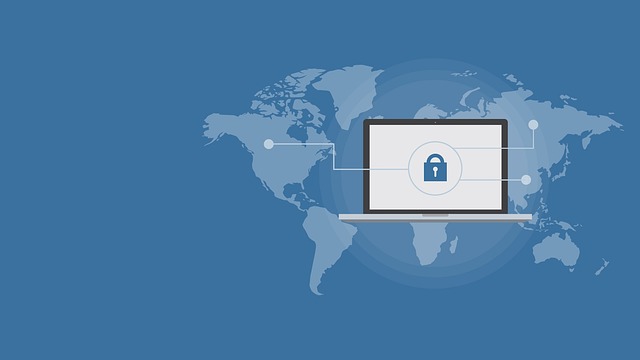
Summary
This article explores the vulnerabilities of the UK’s National Health Service (NHS) to data breaches and ransomware attacks. It examines historical breaches, the increasing impact of ransomware on healthcare, and the devastating consequences for patients. The article emphasizes the urgent need for improved cybersecurity measures within the NHS and the broader healthcare sector.
Main Story
Millions of UK Health Records Exposed: A Persistent Threat
The UK’s National Health Service, or NHS as you probably know it, is sitting on a goldmine… of sensitive patient data. And that makes it a huge target for cybercriminals. Over the years, the NHS has, frankly, been hit hard. We’re talking millions of patient records exposed, highlighting just how vulnerable the system is to human error and those seriously sophisticated cyberattacks.
I mean, can you believe that one report showed that between July 2011 and July 2012 alone, a staggering 1.8 million health records were compromised across 16 separate breaches? Seriously, some of these records ended up in public bins. Others were even being sold online! And then, more recently, you had the May 2025 attack on two major NHS trusts, all thanks to a vulnerability in some mobile management software. It’s a never-ending story, it seems.
The Rising Tide of Ransomware
Ransomware attacks… where hackers encrypt your data and hold it hostage for a ransom payment, they’ve become increasingly prevalent in healthcare. It’s a scary thought. Hospitals and medical facilities? They are prime targets. They’re on the front lines. Why? Because of the critical nature of their services and, of course, the intensely sensitive patient data they hold.
The potential disruption to patient care alone is just… horrific. Couple that with the financial losses of paying the ransom (if they even can pay it), and these attacks are just devastating. Research indicates, and this isn’t really surprising, a significant increase in these attacks since 2015. One study found that in the US alone, the number more than doubled between 2016 and 2021, affecting nearly 42 million patients. Clinics, it turns out, are often the most common targets, followed by hospitals. So, what can you do about it?
Devastating Consequences for Patients
And, honestly, the consequences of these attacks are far worse than just financial losses. Ransomware attacks disrupt essential services. You’re talking delays in treatment, cancelled procedures, and even ambulances being rerouted to already overloaded facilities. Talk about a crisis piled on top of a crisis.
I remember reading a report from 2023 by Emsisoft. It revealed that a frightening 2,207 U.S. hospitals, schools, and government organizations were directly hit by ransomware. And the knock-on effects rippled far beyond that. Studies are starting to show ransomware attacks actually lead to poorer patient outcomes, increased medical complications, and, sadly, even higher mortality rates. And, establishing a direct causal link is difficult, but one study estimated that something like between 42 and 67 Medicare patients died as a result of these attacks between 2016 and 2021. It’s really a bleak picture, isn’t it?
The Need for Enhanced Cybersecurity
Now, I know all of this sounds pretty awful. However, the fact that the NHS is being repeatedly targeted should scream that there is an urgent need for vastly improved cybersecurity measures. And it’s not just one thing, it’s everything.
- Multi-factor authentication is a must
- Network security needs to be ironclad
- Software needs to be updated regularly, not just when someone gets around to it
- And staff training? That needs to be robust, focusing on cybersecurity best practices, including spotting phishing scams.
Healthcare organizations have to put patient safety first by investing in proactive security measures. Not reactive, after the fact band-aids. This protects patient data and ensures the continuity of essential medical services, and, frankly, that’s what really matters.
I think, given the increasing sophistication and frequency of these attacks, it demands a serious, concerted effort from healthcare providers, cybersecurity experts, and government agencies to face this growing threat head-on. If they don’t address these vulnerabilities…well, we’re going to see further breaches, more disruptions, and even more potentially tragic consequences for patients. And that’s a future nobody wants.


The highlighted breaches from 2011-2012 involving physical records are alarming. What strategies can healthcare providers employ to ensure the secure disposal of outdated patient information, especially as data transitions to digital formats?
That’s a great point! Secure disposal is crucial. Beyond shredding physical documents, for digital data, techniques like data sanitization and degaussing are vital. Regular audits and staff training on these procedures can also greatly minimize risks. What other methods have people found effective in their organizations?
Editor: MedTechNews.Uk
Thank you to our Sponsor Esdebe
Sold online, you say? I hope they at least accepted crypto for extra security. Seriously though, beyond the tech, does anyone think mandatory ethical hacking courses for NHS staff might help them think like the bad guys? Just spitballing here!
That’s an interesting idea about ethical hacking courses! It definitely highlights the need for a shift in mindset. Training staff to think like attackers could be a valuable proactive measure, alongside technical security. What aspects of ethical hacking would be most beneficial for healthcare professionals to learn?
Editor: MedTechNews.Uk
Thank you to our Sponsor Esdebe